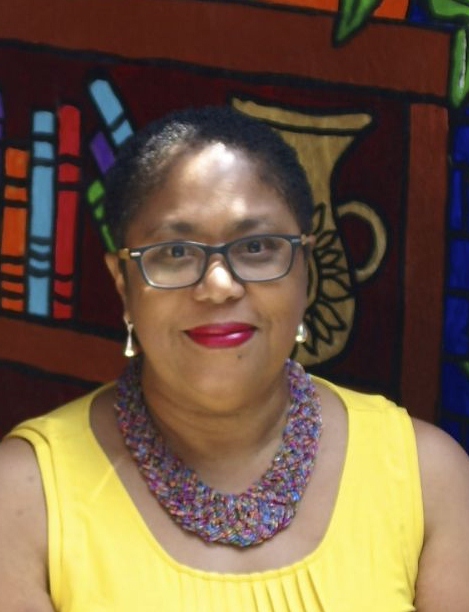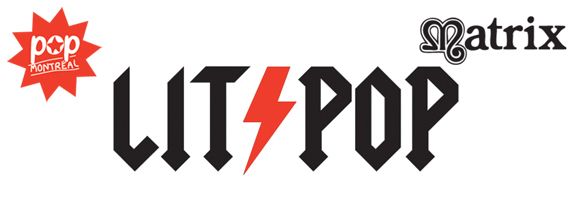2013 First Fiction Sampler
Read exclusive excerpts from the novels and story collections of debut fiction writers NoViolet Bulawayo, Bushra Rehman, Bill Cheng, Anton DiSclafani, and Chinelo Okparanta.
Jump to navigation Skip to content
Read exclusive excerpts from the novels and story collections of debut fiction writers NoViolet Bulawayo, Bushra Rehman, Bill Cheng, Anton DiSclafani, and Chinelo Okparanta.
Cover subject Neil Gaiman recently visited the Daily Beast to speak about his new novel, The Ocean at the End of the Lane, published by William Morrow. Pick up the current issue, on newsstands now, to read Michele Filgate's interview with the best-selling author.
The debut author, who is interviewed by Nathan Englander as part of "First Fiction 2013" in the current issue, reads from his first novel, Southern Cross the Dog, which was published in May by Ecco. Read an excerpt from the novel in our 2013 First Fiction Sampler.
Depending on one's point of view, long sentences are either a writing hazard or a literary virtue. From Joyce to Faulkner to Lowry, authors have long been showing off their prowess at stringing together clauses in seemingly endless narration. Try writing a scene, in which one character says goodbye to another, using sentences as long as you can muster.
The National Book Award-winning author of Let the Great World Spin recently spoke with the PBS NewsHour's Jeffrey Brown about his latest novel, TransAtlantic, which features a fictional braiding of the narratives of Frederick Douglass traveling through Ireland in 1845, the first nonstop flight across the Atlantic in 1919, and Senator George Mitchell in 1998 trying to forge a peace treaty in Northern Ireland. (Check out Brown's retake at the beginning of the clip.)
The author of the novels The Time Traveler’s Wife (Houghton Mifflin Harcourt, 2004) and Her Fearful Symmetry (Scribner, 2009) reads from her new graphic novel Raven Girl, featured in this issue's The Written Image, at the Royal Opera House in London.
Dahlma Llanos-Figueroa is a novelist, memoirist, and short story writer whose work is grounded in the Puerto Rican communities on the island and in New York City. Her novel Daughters of the Stone (Thomas Dunne Books, 2009) was shortlisted for the 2010 PEN America Award and has been included in Breaking Ground/Habriendo Caminos, an Anthology of Puerto Rican Women Writers in New York 1980-2012 (Editorial Campana, 2012). She was a 2006–7 Bronx Council on the Arts Literary Fellow and is a three-time BRIO/ACE award winner. She is currently at work on a second novel titled People of Endurance. P&W has supported Llanos-Figueroa as both a reader at La Casa Azul bookstore and workshop leader with DeAlmas Women’s Collective, both in New York City.
 How does giving a public reading inform your writing?
How does giving a public reading inform your writing?
When I sit down and write my novels, I am creating a monologue. Only when I go out and share my words with readers am I participating in a dialogue. I get as much as I give. The audience welcomes my reaching out to them. They know I value their questions, suggestions, and ideas. Even small turnouts can be valuable in unexpected ways. They provide an intimacy that allows for each attendee to interact with me on a personal level, often expressing opinions that would never surface before a larger audience.
What are your reading dos?
I try to tailor my presentation to the needs and experiences of the audience. My novel spans the entire voyage of Afro-Puerto Ricans from Africa to Puerto Rico to New York City, as told through the lives of the women in one family. In East Harlem, I often choose an excerpt set there or a chapter on migration to a new city. In Puerto Rico, I choose chapters set there during colonial times. In high schools, I select excerpts that focus on parent/child relationships.
…and your reading don’ts?
I never cut off a question or response. No matter how much I agree or disagree, I give the speaker the space to express him/herself. I hope that the reader enjoyed my work, but if they didn’t, they are entitled to their point of view. And I might even learn something new.
What’s your writing critique philosophy?
When teaching, I tend to ask questions rather than make pronouncements. I believe by asking a question, you invite the writer to reconsider rather than defend. “How can this emotion be communicated in the character’s body language?” is better than “Show don’t tell!”
How do you get shy writers to open up?
Breaking up into small groups allows for a more personal, less threatening experience. I recently took a workshop with Cristina Garcia and loved the way she broke us up into groups of four. After each critiquing session, the groups rotated, allowing for each writer to get critiques from everyone. Getting feedback from three people at a time is better than sitting through twelve critiques that often get repetitive and feel like badgering. It’s a time consuming process, but well worth it. Also, you can always do an in-class small group critique, and then have the rest of the feedback in writing.
A safe, welcoming environment makes my job as a workshop leader much easier. In my P&W–supported workshop for the DeAlmas Women’s Collective, a group focused on women’s spiritual and emotional well-being, the intimate workshop space was set up with lighting, music, candles, and incense. The focus was on finding the story within, and the participants were asked to bring images significant to them. We created a Sacred Journal, and used meditation techniques and visual prompts to tap into memories, which yielded some outstanding memoir pieces. Because the group members were comfortable with the environment and each other, the sharing came easily.
What do you consider to be the value of literary programs in the community?
I have heard people in the industry justify the lack of Latino books being promoted by saying that Latinos don’t read. I wish they could see the crowds of readers who come from all over the city to attend literary events at La Casa Azul, the only Latino bookstore in East Harlem. My P&W–supported reading was standing-room-only. People in the community are thirsty for literature that reflects their reality and grateful to authors, who respect them enough to read there.
Photo: Dahlma Llanos-Figueroa. Credit: Orlando Gonzalez.
Support for Readings/Workshops in New York City is provided, in part, by public funds from the New York State Council on the Arts and the New York City Department of Cultural Affairs, with additional support from the Louis & Anne Abrons Foundation, the Axe-Houghton Foundation, The Cowles Charitable Trust, the Abbey K. Starr Charitable Trust, and the Friends of Poets & Writers.
The debut author, who is interviewed by Curtis Sittenfeld as part of "First Fiction 2013" in the current issue, reads from her first novel, The Yonahlossee Riding Camp for Girls, which was recently published by Riverhead Books. DiSclafani also talks about teaching and her experience as writer in residence at Washington University in St. Louis.
The Montreal–based Matrix Magazine and POP Montreal International Music Festival have teamed up to create the Lit Pop Awards—an annual literary competition for poets and fiction writers whose work “exemplifies a spirit of innovation and verve with rockstar attitude.”
Two winners will each receive a round-trip ticket and VIP pass to the POP Montreal Festival (September 25–29), accommodation at a bed and breakfast, fall publication in Matrix Magazine, a one-hundred-dollar honorarium, and a presentation at a Matrix Lit POP event during the festival. The deadline for entry is June 30.

Eileen Myles, whose most recent collection is Snowflake/different streets (Wave Books, 2012), will judge in poetry; Sheila Heti, whose most recent novel is How Should a Person Be? (Holt, 2012), will judge in fiction.
The contest is open to residents of the United States and Canada. Poets may submit up to five poems and fiction writers may submit stories of up to 3,000 words with a $25 entry fee. Entries may submitted via Submittable, by e-mail at litpop2013@gmail.com, or by postal mail to Matrix Publications, 1400 de Maisonneuve Blvd W., LB 658, Montreal QC, H3G 1M8. Visit the website for complete submission guidelines and payment options.
Founded in Lennoxville, Ontario, in 1975, Matrix Magazine has been published as part of the creative writing program at Concordia University in Montreal since 1994. The POP Montreal Festival, held annually since 2002, is a festival of music, visual art, and literature that “champions independence in the arts by presenting emerging and celebrated artistic talents from around the world.”
The debut author, who is interviewed by Pulitzer Prize-winning novelist Paul Harding as part of "First Fiction 2013" in the current issue, talks about her first novel, We Need New Names, which was published in May by Reagan Arthur Books. Read an excerpt from the novel in our 2013 First Fiction Sampler.